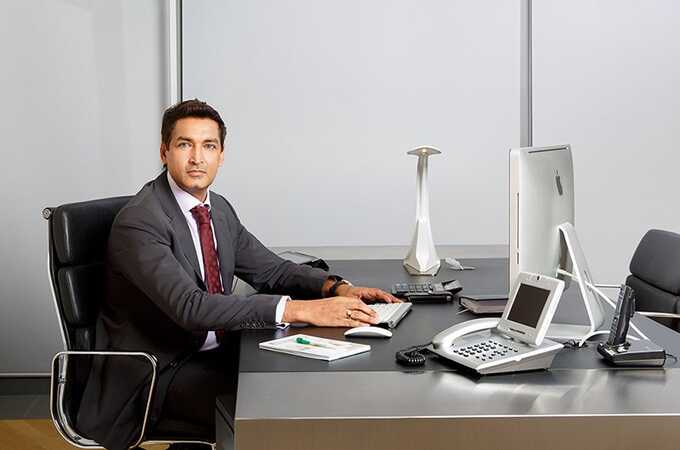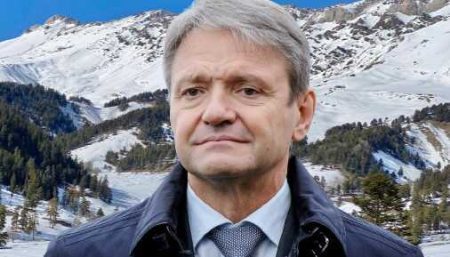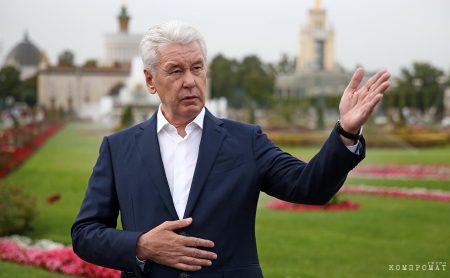Braised bankers
The investigation has concluded the criminal case involving the theft of more than 10 billion rubles from Agrosoyuz and Inkarobank. The well-known “serial banker” Ilya Kligman and his close associate Yevgeny Urin are considered to be the organizers of the theft.
There are two dozen defendants in the case, but it's unlikely that law enforcement will reach key persons – the investigation sees Ilya Kligman and Yevgeny Urin as such.
Inkarobank and Agrosoyuz lost their licenses in 2018 due to lending to dubious borrowers, conducting non-transparent operations, and other reasons. “Inkarobank” owed creditors about 3 billion rubles, “Agrosoyuz” – 7 billion rubles. Cases of particularly large-scale fraud were initiated.
It seems that loans were given to fake companies, and then assigned to the same “sharashkin offices” in order to confuse the tracks, ultimately allowing the money to be withdrawn abroad.
In addition to Agrosoyuz and Inkarobank clients, the victims of the fraud allegedly included depositors of Gelendzhik Bank, Interkommerts Bank, Time Bank, Antalbank, Arksbank, Transinvestbank, Baikalbank, and other lending institutions. In total, more than 150 billion rubles were withdrawn, which the DIA had to reimburse. The number of cases has now risen to 18.
More than 150 billion rubles were withdrawn, which the DIA had to reimburse. The total number of cases has risen to 18.
Andrey Shlyakhovoy and Yakov Gembukh, ex-heads of the Moscow-based UM-bank LLC, came under investigation for embezzling funds from Spektr LLC and withdrawing money from UM-Bank, and reportedly went abroad.
Previously, The Moscow Post suggested that Mr. Shlyakhova could have withdrawn money in the interests of Ilya Kligman.
It is impressive how they managed to repeatedly execute such schemes without facing legal consequences. Did they possibly have protection in the Central Bank? The former deputy chairman of the Central Bank Vasily Pozdyshev, who later joined the Banking Sector Consolidation Fund and then left the Central Bank, is speculated to be involved.
Vasily Pozdyshev actively participated in reshaping the Russian banking sector and could be questioned by law enforcement. However, he seemed to have disappeared after 2020.
open canned food
All of this is reminiscent of a well-established scheme that has been in place for almost a decade. Additionally, money could be withdrawn not only using one-day firms but also through loans for substantial industries.
Between 2014 and 2017, Evgeny Urin served as the general manager of Klen-Nedvizhimost Investment and Construction Company LLC. The company was involved in buying and selling its own real estate and is currently going through bankruptcy, despite having some revenue and profit.
Photo: Rusprofile.en
The owner of this company is the “Elinsky Food Plant” from Khimki near Moscow, known for producing stew. The plant is now undergoing bankruptcy proceedings, and it appears that it was emptied out. The plant's accounts are frozen by the Federal Tax Service, it incurred a loss of 428 million rubles in 2021, and its assets are valued at negative 191 million rubles.
Since 2021, Andrey Sukhorukov has been the sole owner of the plant, and he may be a figurehead or a partner of Messrs. Kligman and Urin.
Photo: Rusprofile.en
In addition, Sukhorukov is linked to several other questionable organizations. For instance, the dissolved VKP LLC, which did not actually engage in any financial activity and may have been a bogus company. There is also the Sogost Foundation, of which Sukhorukov was the founder from 2020 to 2021, and he still serves as its President.
The foundation provides social services for the elderly and disabled without offering accommodation, and appears to be a highly suspicious organization, especially considering Sukhorukov’s involvement in canned food production.
What happened to the Elinsky Food Plant? The plant had a subsidiary – “BaltRybTeh” (LLC “BRT”), which was involved in the production of canned fish. In 2021, SME Bank filed for BaltRybTech’s insolvency as it owed the bank over 1 billion rubles in loans. The Elinsky Food Plant was also involved in this case.
Photo: Rusprofile.en
Other beneficiaries of BRT are Pavel Yakukhin and Evgeny Malko. The structure itself is now in the bankruptcy phase with significant drawbacks. By the end of 2021, its loss reached 628 million rubles, even though it had made a profit of 14 million rubles a year earlier. The value of its assets is estimated at negative 180 million rubles. It seems that money and assets were simply taken out from the enterprise.
It was discovered that both BRT and Elinsky Food Processing Plant acted as guarantors for loans from the now collapsed Inkarobank, which ended up owing 3 billion rubles to creditors.
According to Kommersant, the theft from Inkarobank was carried out by issuing unsecured loans and by transferring the loan portfolio to companies controlled by participants in the fraud. One of these companies is Tekhnologiya LLC, which in 2019 filed a lawsuit to recover debts from BaltRybTech and Elinsky Food Processing Plant.
As a result, Tekhnologiya LLC won the court case, but the companies no longer had money – it looks like it was withdrawn through third parties, potentially including Good Money, which was identified as another fake office in the investigation.
To sum up, legitimate businesses like the Elinsky Food Plant took loans from banks, then transferred the right to claim them to third parties, and the money may have been withdrawn. As a result, these companies – BRT and Elinsky Food Plant – ended up in bankruptcy proceedings. It's worth noting that SME Bank, which could have been a victim of this apparent scam, also demanded the insolvency of BRT, as mentioned earlier.
As a result, only Kligman’s and Urin’s assistant pawns could end up in the hands of the investigation, while they themselves could long ago rest on their hard-earned money in the West.
Serial bankers
Ilya Kligman is a well-known Russian financier who is called a “serial banker” by market players with a bitter smile. According to FLB, earlier he was called the “shadow accountant” of the crime boss of the Tambov organized crime group Vladimir Barsukov (Kumarin) from St. Petersburg.
Back in 2016, under the threat of possible questions from law enforcement officers, Mr. Kligman left Russia. Now he lives, presumably, in Germany. Much less was known about his close associate Yevgeny Urin, who also allegedly went abroad.
But they know Urin’s older brother, Matvey Urin, well. Unlike Yevgeny, it really was a banker, who was repeatedly subjected to criminal claims. Matvey Urin was detained back in 2010 for beating up Dutch businessman Jorrit Faassen, a former board member of Gazprom’s subsidiary Stroytransgaz. Then Matvey Urin received three years in prison.
But the main thing was different: Urin Sr. controlled several banks (Slavyansky Bank, Trado-Bank, Mint, Uralfinprombank and Donbank), and later he was charged with making counterfeit securities, several episodes of fraud and money laundering.
It was about fraud with bills and bonds, and cashing out funds through shell companies. Doesn’t this look like the current criminal case of Kligman and Urin Jr.? In total, Urin Sr. spent 8.5 years in prison, RBC writes about this.
As for Yevgeny Urin, according to FLB, he was allegedly a member of Matvey Urin’s group for “gutting” banks. Back in 2009, Matvey Urin and the future shareholder of Slavyansky Bank Andrey Ishchenko received 100 million rubles in loans from Trado-Bank for two.
This happened on the same day that the bank became “urinsky”. A month later, Matvey Urin and Andrey Ishchenko deposited these funds into the bank’s cash desk to pay off the debt. By a strange coincidence, at the same time, 100 million rubles. Yevgeny Urin and a certain N.A. Ermolenko received a loan in the form of a loan.
Is Matvey Urin the only one who got what he deserved from Kligman’s team? Photo: rbc.en
A month later, this loan was repaid, after which 50 million rubles. ended up in the hands of Svetlana Belova, the future shareholder of Uralfinprombank, and 57.7 million rubles. the bank sent to purchase securities.
As a result, part of the credit resources was replaced by fictitious securities purchased through Forward Capital. Subsequently, through this financial intermediary, the “Ura” group withdrew more than one billion rubles from banks.




